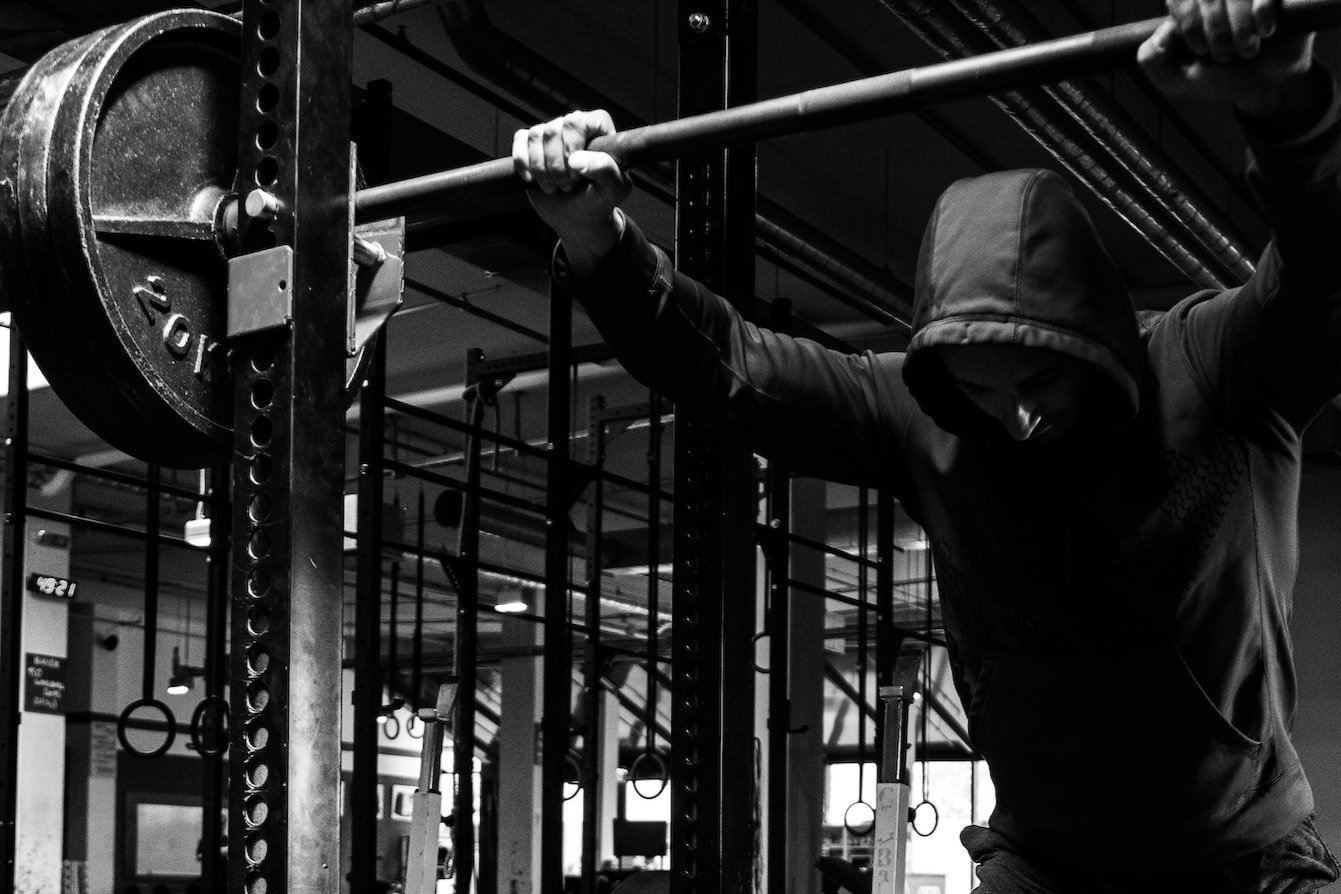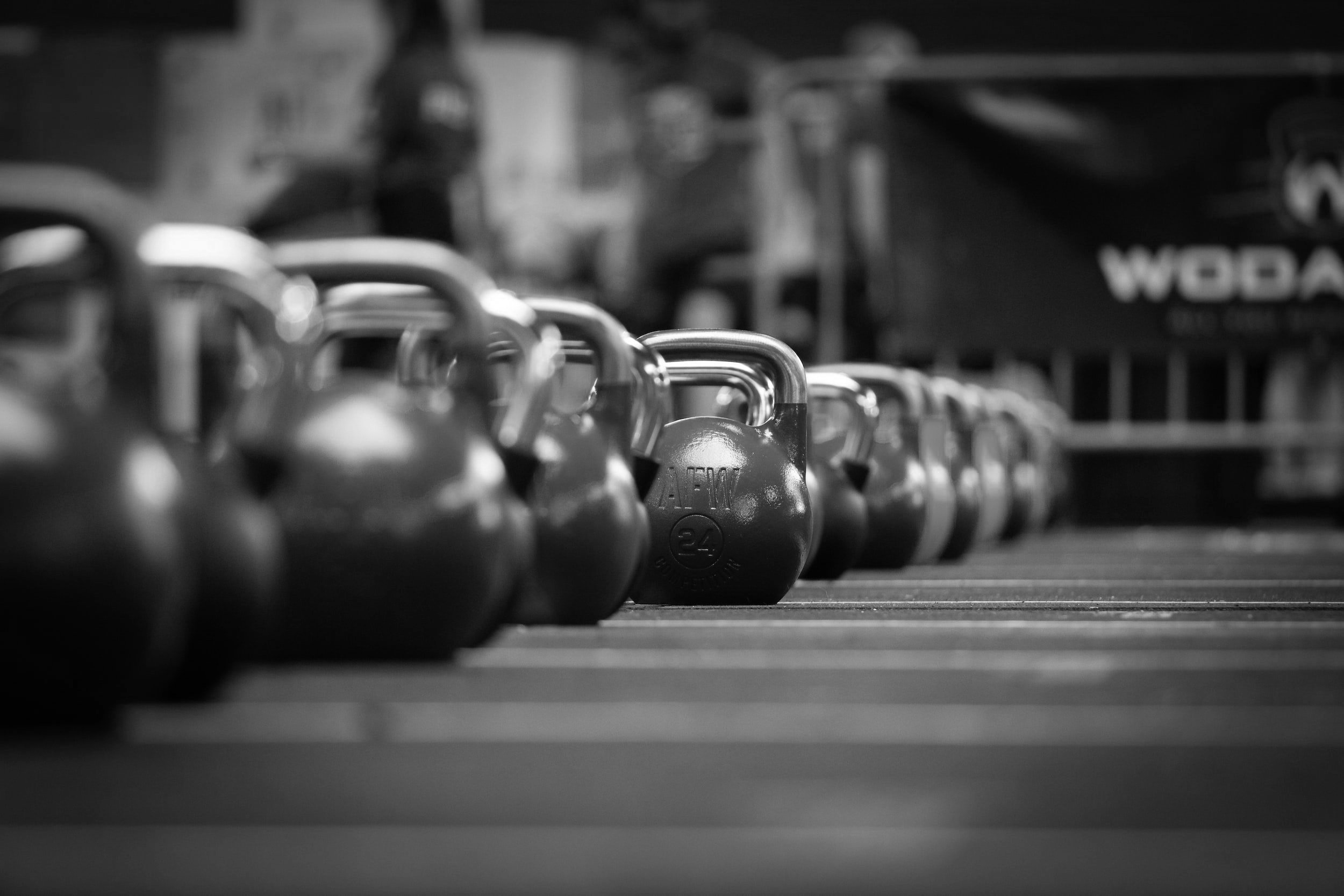
Welcome!
My goal is to guide you through the process of cultivating a foundational level of strength that will last you a lifetime. This isn’t difficult to achieve, but it does require deliberate planning and a commitment of at least four to six months, a block of time that I like to refer to as The Strength Block.
The focus during this time is on movement patterns like squatting, deadlifting, and pressing rather than isolated muscles because these movements have the greatest carry over to the strength you require in daily life.
What is The Strength Block?

Standards are important because they help us quantify our progress and make sure that our time in the gym is not being wasted. Most beginners can expect to hit the following milestones within their first four to six months of training:
Deadlift: 1.75-2x bodyweight
Squat: 1.5x bodyweight
Bench Press: 1-1.25x bodyweight
Overhead Press: 0.7-.08x bodyweight
Chin Ups: 1-5 reps
Our Strength Standards
Services
-
Come by the gym in Springfield, VA. and learn how to perform the compound lifts under the guidance of a coach. I will assess your strength and mobility and then determine which movements suit you best at your current level.
I will also provide remote coaching for a week to help you consolidate the skills you learned during the in-person session and kickstart your strength block.
Learn more and book your session here.
-
In a small group of no more than three trainees, complete a 4-6 month training block under the guidance of a coach. Classes meet 1-2 times a week and focus on fundamental movement patterns rather than isolated muscles. Each class will have strength or conditioning standards that you can expect to achieve by the end of the training block.
Find our current offerings & timings here!
-
Working with a coach long-term is the surest and safest way to get strong. Regardless of whether you’re training at home, a hotel, or your neighborhood gym, I will help you make the best use of the time and equipment available to you.
You will receive each day’s training plan on your phone via TrueCoach, where you will upload videos and update me on your progress. I will provide detailed feedback on your technique and help you steadily progress towards meeting our mobility and strength standards.
Learn more and schedule a free consultation here to see if this option is right for you.
The Blog
In this post I will detail some of the principles that guide my training during Ramadan, the goal being to retain as much strength and muscle mass as possible with the least amount of time and effort. Now, it’s certainly possible to make significant gains during Ramadan, but that requires more time and energy than I am willing to put towards training during this month. Most of my trainees feel the same way. They want to train, but not at the expense of missing out on time with their family or at the mosque. And so we focus on maintenance instead.
There is a lot of talk about what constitutes a “healthy” diet, but rarely do we ever define what exactly we mean by “healthy”. And when we do define “healthy”, we often get lost focusing on things that have marginal benefit and ignoring those things that have substantial benefit. In this post, I hope to demystify nutrition and offer the framework I use when thinking about food.
I frequently encounter people who tell me about their failed attempts at completing a novice strength program like Starting Strength or StrongLifts. They were expecting to make progress for 4-6 months but instead hit a plateau within 4-8 weeks of training. In this post, I will explain why that is and offer some advice on how you can adjust your programming to make more sustained progress on a novice strength program.
In this post, I lay out the basic skeleton for the program I recommend to most beginners. But first, who is a beginner? In the world of strength training, a beginner is anyone that has not completed a 3-6 month training cycle in which they systematically increased the weight for the compound barbell lifts, even if this person has been hitting the weight room for years.
You’ve heard and read enough about strength training and are ready to begin your Strength Block. You want to learn the lifts, but are unsure where to go. You might be thinking of simply booking a session with a personal trainer at your local gym, but I would caution you from doing so just yet. It’s important to understand that Personal Trainers are not (usually) strength coaches, despite how impressive their physiques may be.
While a 1,000 lb. deadlift is certainly beyond the genetical potential of most of us, a 400-500 lb. deadlift is quite achievable by most young males (<50) that devote 2-3 years to intelligent and purposeful training. Similarly, most young women can aspire to a 200-300 lb. deadlift. Moreover, progress in any type of physical training is never linear, but logarithmic. This means that most of the progress you make in those 2-3 years is achieved within the first four to six months, a period of time I like to refer to as The Strength Block.
We often speak of losing weight, but what most of us really want is to lose fat while retaining or even gaining muscle. In my previous post, I explained how three things must be present to make this happen: adequate protein (1g per pound of bodyweight), sufficient training volume, and a caloric deficit. In this post, I will dive a little deeper into what it means to be in a caloric deficit and how best to achieve this.
Meet Ahmad (whose name isn’t actually Ahmad), a young professional in his early thirties. He recently completed his first training block, following the abridged program I detailed in a previous post title “The Beginner’s Strength Block”. On the final day of training, he hit the following numbers at a bodyweight of 185 lb:
A good strength training program will incorporate four basic movement patterns: a hinge, a squat, an upper body pull and an upper body push. Of these, priority is given to those exercises that utilize a full range of motion, admit of incremental loading, lack artificial limiters, and have the greatest carry over to daily life.
Strength is an adaptation. It is the body’s response to certain stressors that we place on it. When the stress is sufficient, the body responds and adapts. When the stress is insufficient or excessive, the desired adaptation does not occur. Programming is all about identifying the appropriate dose of stress to apply to trigger the desired adaptation.
…the stress of a one-rep max is too great to recover from. It does not constitute a good training stimulus, but a performance. In other words, it tells us how strong we are, but it does not make us stronger. The appropriate dose for strength training must be something that the body can quickly recover from and adapt to.
My trainees fall into one of three groups: Some are lean, others are overweight, and most fall somewhere in the middle. In this post, I would like to share how I go about making nutrition recommendations for each group.
The question I’m constantly asked is: how do I eat more protein without eating more calories?
In this post, I’ve put together an example of how I manage to get 150g of protein and stay under 2,000 calories:
I can’t stress the importance of learning to squat from a competent coach—if you’re unsure where to find one, start here! But if you do not have access to a coach or are still struggling with certain parts of the movement despite having met with a coach, then the following videos may help:
I can’t stress the importance of learning to overhead press from a competent coach. But if you do not have access to a coach or are still struggling with certain parts of the movement despite having met with a coach, then the following videos may help:

Testimonials
-
I have been working with Muaz for about 3 months now, and I can say with confidence that this is the first [time] I have experienced a trainer that can extract so much efficiency with little time and resources. As a father to four little ones who is getting into strength training for the first time in 16 years with only a pair of dumbbells to my name, Muaz has somehow been able create programming that generates so much benefit. When I was eager to make large purchases to maximize my chances of success, Muaz was there to ground me and build discipline with what I already had. When he senses I'm busy on the home front he knows exactly how to tailor my workouts without shaming me for real life. It keeps me coming back week in and out. Something that has also amazed me is his broad knowledge across so many areas of health and wellness. He's been coaching me through sleep, nutrition, mobility, and more, all without a "boil the ocean" approach...I'm excited by the gains I've made in such a short time that have benefitted me and my family on a daily basis. I have been recommending Muaz to others left and right and am happy that there's a platform here for me to write out exactly why.
Malik Kotob (Virginia, USA)
-
I’ve been training with Coach Muaz on and off since early 2020…Our relationship has evolved beyond coach and trainee—he’s become a mentor who genuinely cares about my health and strength. There have been times when I didn’t feel like training, but Muaz has always encouraged and motivated me to keep going…His approach isn’t just about lifting weights but improving overall health. For example, my virtual desk job left me sedentary most days, but Muaz integrated manageable goals for daily steps…Another area where Muaz has made a significant impact is my posture. I’ve always struggled with hunching over while sitting, but his targeted exercises and attention to detail have brought noticeable improvements…What sets Muaz apart is his ability to meet you where you are and guide you to where you want to be. He’s meticulous about form, tailors programs to individual needs, and ensures progress without overexertion or burnout.
Salman Ahmad (New Jersey, USA)
-
Muaz is an exceptional personal trainer and a true expert in his field. His deep knowledge and use of the latest research shine through in the personalized programs he creates, ensuring constant progress without overexertion or fatigue. He has a unique ability to make you stronger without you even realizing it, breaking through personal records you thought were unreachable. Muaz holds you accountable in a kind and supportive way, regularly checking in and providing detailed feedback to perfect your form. His insights and tailored advice based on individual goals are unmatched. After a year of working with him, I’ve achieved strength levels I never thought possible. I recommend Muaz wholeheartedly and continue to look forward to reaching even greater milestones under his guidance. I recommend him 150%! He will make you strong!
Abdur Rahman (Amman, Jordan)
-
Muaz is a gifted trainer, coach, and teacher who is deeply invested in each person he works with. With Muaz' support, I was able to overcome common hurdles such as burnout and injuries and finally maintain a serious lifting regimen. Every day I know exactly what I need to accomplish without having to overthink how many reps I should be doing and how much weight I should add or decrease. This is exactly what I needed — outsourcing the mental and strategic aspects of lifting to the expert. I'm personally very happy and impressed with the results so far, and I highly recommend training with Muaz at The Strength Block.
Nirav (California, USA)
-
I had prior experience of strength training, but coach Muaz has added a new dimension to my workouts - as my first ever personal trainer. I was previously used to doing individual body parts (chest, biceps, shoulder etc) but he has added compound exercises to my regimen. Additionally, he has focused on my diet, sleep and steps in parallel for a holistic focus on overall health, to ensure muscle gain. Within 1-month of training with him, I have managed to reach weights that I deemed impossible earlier. He has a meticulous step by step process of ensuring correct form and technique, prior to increasing weights. Taking videos in the gym was something that I had to get used to, but it has definitely been worth it, because he would always analyze them and give minute feedback! I'd highly recommend him to anyone who is on the lookout for a personal trainer, with a unique approach tailored especially for you!
Ziyad Khan (Islamabad, Pakistan)
-
I highly recommend Muaz Inaam as a personal trainer… He was able to answer all the questions I threw at him, from technical adjustments to dietary recommendations to physical mechanics. The results of his program speak for themselves. Over just eight months of training with Muaz—less than 100 total sessions at the gym—I had tripled to quadrupled the weight of every major lift that we were focusing on.
Abdullah (Virginia, USA)
-
Before diving into the Strength Block, I'd been hitting the weights for a solid year, but I wasn't seeing the gains I wanted. Back then, I was around 155 pounds, standing at 5 foot 7 inches. Honestly, I hadn't even tried deadlifts or overhead presses, but on bench, I could manage around 170 max, and squatting was hovering around the 150 mark or so. Right now, I'm clocking in at 150 pounds. As for the numbers, I've seen some major gains: hitting 195 on bench, 125 on overhead press, a solid 325 on deadlifts, and cruising at 255 on squats. It's kind of wild because the workouts felt surprisingly short and easy. I'm honestly amazed at how much my lifts shot up with what felt like minimal effort.
Ammar (Texas, USA)
-
…[Muaz] didn’t just help me get stronger and increase muscle mass—he deepened my understanding of strength, training, and overall health. It felt like both a hardware and software upgrade. After more than a year of training with him, I’ve seen fundamental improvements in my base level of strength, proprioception, power generation, diet, and discipline around training…working with Muaz has been a capital investment in my health—the foundation of becoming a strong and healthy person. For more details about his top-notch instruction, technique adjustments, programming, and adaptability to life’s curveballs, just read the other reviews.
Motaz A. (Virginia, USA)
-
I have benefited both physically and mentally from strength training. Physically, I feel more confident in my posture and composition as I also feel stronger. Mentally, I feel rejuvenated every time I go to the gym, be it through stress release or simply getting a sense of accomplishment. Moreover, my training allows me to focus to a greater extent on my studies and work too.
Ali (California, USA)
-
I was always interested in lifting weights for health reasons. Since high school, it was something I was interested in, but never really remained consistent. I would find myself experiencing burnout or failure due to not seeing progress. However, once I began with Muaz, not only have I been able to find consistency, see progress, and find myself the healthiest I’ve been, but I’ve been able to finally develop a healthy relationship with my body, my self image, and food. Muaz has taken me on a journey of becoming a better, holistic individual through the medium of coaching and weightlifting. I now understand the importance and benefit of having a coach. Anyone looking for serious mental, physical, and social improvement could use someone like Muaz.
Zaid Khanani (Florida, USA)
-
I've been working with Muaz for the last 10 weeks and it has been a really amazing experience for me. I haven't been this consistent lifting weights for over two years but working with Muaz I have gotten back to lifting 3 times a week. The custom approach he takes with walking me through my own journey and my own needs and improvements is truly remarkable. He really helps you understand your form, the techniques you need to use, and any modifications needed to ensure you don't hurt yourself or overdue it. I've been really impressed with my progress and just working with him has been such a pleasure. I recommend Mohammad to anyone who is looking to start their lifting journey or just wanting to get back into it consistently to build strength in a sustainable way.
Othman (Virginia, USA)















